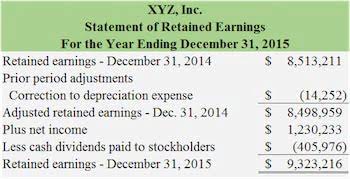
These adjusting entries ensure that a fair valuation is given to the customer or the business with whom the transaction was conducted. It makes sure that both parties of the agreement have recorded their accounts accordingly so that no discrepancy is left unwarranted. Therefore, an trial balance accrual type adjusting entry is made for the revenues earned as per the services provided, even though they will be billed at the end of their accounting period. The main advantage of accruals and deferrals is that revenue and expense will be aligned, allowing firms to account for all expenses and revenue during an accounting period. Using these strategies regularly helps someone looking at a balance sheet comprehend an organization’s financial health during the accounting period. It also assists business owners and managers in measuring and analyzing activities as well as understanding financial commitments and revenues.
Accruals And Deferrals: Timing Differences In Revenue And Expense Recognition
Their purpose is to make reading accounting transactions consistent and comparable. The statement of cash flows reconciles the net income from the income statement with the actual cash entering and leaving the company. It clarifies how the company’s cash position has changed over time, segregating cash flows into operations, investing, and financing activities. This statement is particularly useful in understanding the timing of cash movements in relation to the earnings reported on the income statement.
- Using accruals allows a business to more closely adhere to the matching principle, where revenues and related expenses are recognized together in the same period.
- Each scenario demands recognition on balance sheets and income statements under accrual accounting rules—offering a comprehensive snapshot of fiscal health beyond mere cash flow.
- It forms the basis of the accrual method of accounting and adjusting financial statements.
- You would hire the plumber to fix the leak, but not pay until you receive an invoice in a later month, for example.
- For example, if a business does work but hasn’t been paid yet, this shows up as accounts receivable on the balance sheet.
- These products can either be physical products such as manufactured goods or can also be the service.
Generally Accepted Accounting Principles (GAAP)

When the product has already been delivered, i.e. business delivered the product or business consumed the product, but compensation was not received or paid for it, then it is considered as accrual. On the other hand, if a compensation was already received or paid for a product that was not delivered or consumed, then it is considered a deferral. Accruals occur when a company has to recognize revenues or expenses that have not Remote Bookkeeping yet occurred in order to maintain the accuracy and relevancy of its financial reports. A deferral of an expense or an expense deferral involves a payment that was paid in advance of the accounting period(s) in which it will become an expense. An example is a payment made in December for property insurance covering the next six months of January through June. The amount that is not yet expired should be reported as a current asset such as Prepaid Insurance or Prepaid Expenses.

Definitions of Accrual and Deferral

Accrual accounting recognizes revenue and expenses when they are incurred, regardless of when cash is exchanged. On the other hand, deferral accounting delays recognizing revenue or expenses until cash is received or paid. On the other hand, deferral accounting delays recognizing revenue or expenses until cash is exchanged.
Accounting and Business Services
- Double Entry Bookkeeping is here to provide you with free online information to help you learn and understand bookkeeping and introductory accounting.
- Business Managers should review their preliminary monthly close report to ensure that all expenses for have been properly recognized in the current fiscal year.
- Similarly, deferred expenses and revenue are not recognized on a cash basis of accounting.
- Journal entries are booked to properly recognize revenue and expense in the correct fiscal year.
- The purpose of doing that is to indicate in the statements that this amount is invoiced, tracked and should be collected.
- It keeps everything based strictly on cash flow, making it simpler but less accurate for long-term contracts and service agreements where payments may spread out over time.
Their main goal is to increase the precision of financial reports by providing a more realistic picture of the organization’s financial situation. On the other hand, deferral basis works differently; it waits for the cash to move before recording. If a customer prepays for a year of services, the business doesn’t recognize all that revenue right away.

An example of a deferral would be an annual accrual vs deferral accounting insurance premium that is paid in full at the beginning of the year but the expenses is deferred on a monthly basis throughout the entire year. Next, we explore how these accounting practices impact overall financial reporting. If goods are received or a service is used, it goes on the books right away, even if payment comes later. When the cabinetmaker finishes the work, they will do the following adjusting journal entry to move the amount from the liability account, Customer Deposit, to the Revenue account, Sales Revenue.
